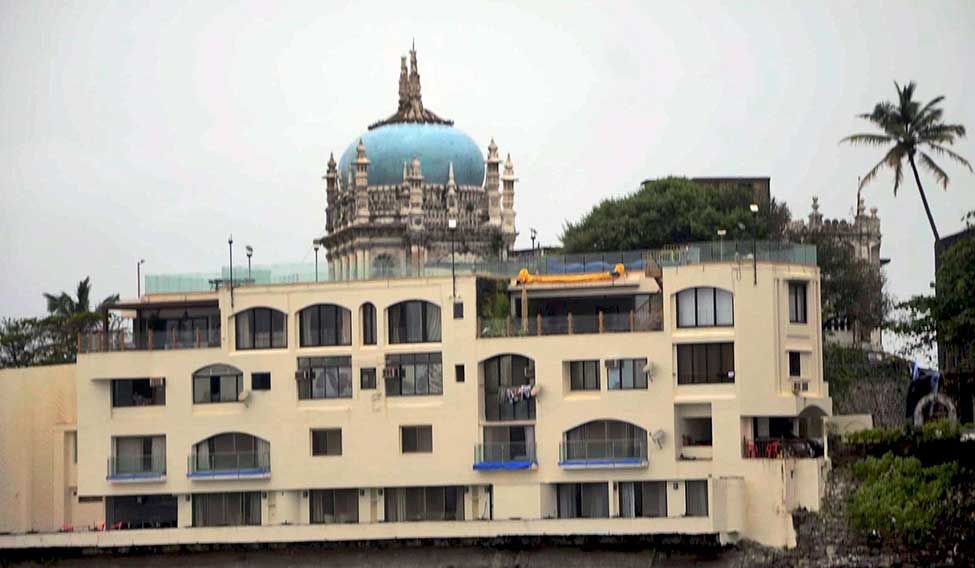As a boy, he sold chillies and spices; as a man, he sold Mandrax, a recreational drug. Muhammed Iqbal Memon was, in his own words, a businessman. Or, as authorities say, India’s number one drug lord. But, whatever the description, Memon, alias Iqbal Mirchi, added flavour to many a story.
Growing up, he had no passion for his family's spice business and soon quit. He also quit high school and became a taxi driver in the late 1960s. However, he soon realised that, as long as he held on to that steering wheel, he wouldn't achieve his dream of being a big shot in Bombay.
So, he hung around the docks, stole from the containers and sold the goods in the market. He started as the sidekick of a big operator called Amir, but soon took over his business. He used to smuggle oil, chemicals, steel, ball-bearings and auto spare parts, and soon built a local network of operatives. He also allegedly worked for gangs led by Karim Lala and Varadarajan Mudaliar.
But, not one to be tethered to the docks, Mirchi established links with global smugglers and turned his focus to the lucrative drugs business. He is said to have controlled the smuggling of Mandrax, which was being illegally manufactured in small units in India, to markets in Europe and Africa. At the time, a Mandrax tablet costing 70 paise would fetch Rs200. And, besides Mandrax, Mirchi is said to have smuggled heroin and hashish from Gujarat and Rajasthan to be shipped to Europe and the US.
In 1986, the Narcotics Control Bureau raided a farmhouse outside Bombay and found a huge consignment of Mandrax tablets, heroin and hashish. The farmhouse allegedly belonged to Mirchi, but no links could be established. Soon after, however, Mirchi shifted base to Dubai, where he set up hotels—one of them was Imperial Suites—and other businesses. He acquired properties all over India, diversified into shipping and had offices in London, Johannesburg, Lusaka, Nairobi, Mozambique and Canada.
“He has been active and paying his way through. That's why the Bombay Police have not built up a case against him. Many police officers have often visited the Fisherman's Wharf hotel. It is very unfortunate that he was a free man in Bombay,” an intelligence officer told THE WEEK in 1995.
His nightclub, Fisherman's Wharf, was the setting for many underworld meetings and brawls. It also played host to police, bureaucrats and movie stars. And, as booze and blood flowed in the nightclub, Mumbai danced to Mirchi's tune. In the early 1990s, his annual income was pegged at Rs1,500 crore.
And, though it was never proven, some believe he was Dawood Ibrahim’s trusted lieutenant and handled his drugs business. Others, however, say he maintained his distance from all gangsters. While they bayed for each other's blood, Mirchi, apparently, consolidated his empire.
Mirchi gained notoriety when his name cropped up in the Bombay blasts of 1993. Many of the accused had named Mirchi during interrogation and he shared his last name with the main suspect Tiger Memon, though they were not relatives. By then, the police realised Mirchi's reach. The tentacles of his business had spread to all continents.
In the same year, Mirchi, in an interview with a newspaper in the Gulf, portrayed himself as a model businessman. He said he was a family man who stayed away from parties and spent his evenings at home. He had two wives, Hajra Memon and Heena Kausar, and three children, all from Hajra. Heena was the daughter of Mughal-E-Azam director K. Asif and had also dabbled in acting.
India, by now, seemed to be losing its grip on Mirchi. In 1994, however, Amar Suvarna, one of the managers at Mirchi's rice mill, turned on him and went to the police. Mirchi allegedly had him bumped off in Bombay. India quickly made a plea for extradition.
Interpol had, by the time, issued a red corner notice in his name and, in April 1995, Scotland Yard officers raided his London home and handcuffed him. The charges against Mirchi, however, did not stick and Bow Street magistrates turned down the extradition plea on technical grounds. Scotland Yard's investigation of Mirchi, which ended in 1999, found no evidence of criminal activity. Mirchi was “clean”.
Later, in an interview, he said: “Everything they say about me is total bullshit. The drugs, the murder, the terrorism. All bullshit. My first crime is that I am a Muslim. My second crime is that I am a successful Muslim businessman.”
While in London, Mirchi stayed at the posh Emerson Park suburb of Essex, and his neighbours remembered him as a warm, cuddly man with a kind face. In his last years, Mirchi seemed desperate to clear his name. He offered to return to India but asked for judicial protection. In an interview with Star News in 2012, Mirchi, by then an ailing grandfather, said he missed his motherland and would do anything to be back.
The Indian government, however, refused the request. In 2013, Mirchi died of a cardiac arrest in London. Now, two years after his death, the Enforcement Directorate has approached more than six countries as part of its investigation into Mirchi's terror funding and hawala operations.
Even after his death, Mirchi, it seems, has left enough masala to last the authorities a lifetime.





